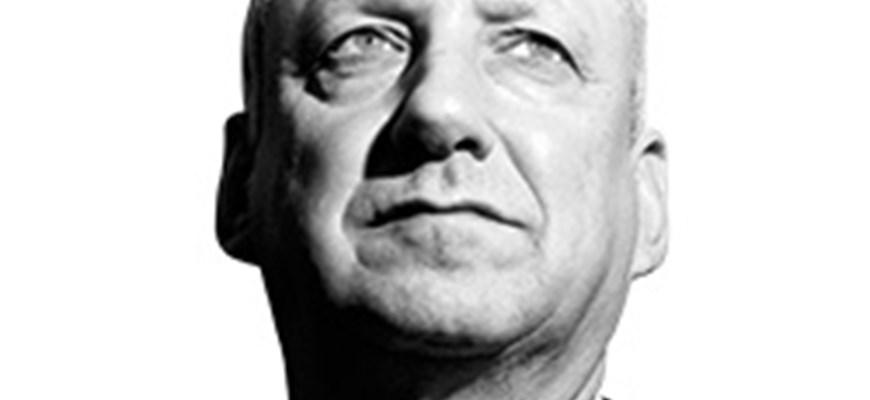
Last month, I discussed how difficult it is for us to change, however much we want to. More difficult still is persuading colleagues, even when it is clear that “the way we do things round here” is not good enough. What is the right mix of carrot and stick? I think of Peter Capaldi as Malcolm Tucker, the legendary political enforcer in The Thick of It, striding across Westminster Bridge on his way to terrorise some hapless junior minister, and musing. “It’s time for the carrot and stick approach. First, shove a carrot up his a***, then a stick, and then an even rougher carrot.” Managing partners the world over know the temptation.
There is an alternative: present the evidence. If my partners say things have to change, I may listen, or I may not. But if my clients give me the message, unless I am terminally stupid, I sit up and pay attention. A hallmark of the most successful firms is that they engage constantly with their clients to develop a forensic understanding of what great legal service looks like to them. I am unashamedly evangelical about this. At the forefront of client engagement when I was in practice, and now helping many different firms, I have seen at first hand how it strengthens relationships, fends off competitors and creates new opportunities.
What is the best method? Some firms send out online questionnaires; they may help, but usually not much. For corporate and commercial clients in particular, there is no substitute for meeting face to face – not “coffee and a chat”, but a meticulously planned discussion.
Formula for success
Following these ground rules should produce excellent results:
First, clients should be selected strategically for both their current and potential value. The one is as important as the other. You may be a secondary provider now, but a project like this can be an excellent catalyst for moving up the ladder.
Secondly, the invitation must be carefully worded: be explicit that the firm values the relationship greatly, is intent on providing the best possible service, and recognises this can come only from a deep understanding of how well it is meeting clients’ needs.
Thirdly, all senior people are busy. Make clear that you are asking for only an hour of their time.
Fourthly, the interview should never be carried out by someone closely involved with the client. You want maximum candour, and clients are much more likely to be frank with an independent person, who must be thoroughly briefed in advance on:
- What work does the firm do?
- What is its current value?
- Who are the key relationship holders on both sides?
- What work goes to competitors, who are they and why are they preferred?
- What is the potential to do more?
- Are there any current complaints about service, pricing, or other issues?
In my experience, clients take part with gusto. They appreciate knowing how much you value them. They will be impressed by your professionalism. Like us all, they enjoy talking about their business, where they are trying to take it, and the challenges they face.
The interview should never be a “clipboard conversation”. You are not a street-corner market researcher. The aim is a sophisticated dialogue in which all the key questions are asked, but which is not prescriptive: it gives clients the freedom to roam. Often, their perceptions, priorities and knowledge of what the firm can do turn out to be quite different to what one might expect.
Agenda points
Among the key questions are:
- How would you describe your relationship with the firm?
- What other law firms are you using, and for what services?
- Where you are using competitors, are you open to change?
Is the firm excellent, adequate or not good enough in these areas: responsiveness; project management; communication; breadth of services; anticipation of your needs; pricing; understanding of your business and sector; quality of work; value-added services?
If all goes well, one should never be afraid to ask, “What would it take to win all your business?”
Finally, interview not just clients, but referral sources. Their perception of the firm’s place in the market and their strategic insights can be invaluable.
I have never yet been involved in an exercise like this which has not resulted in stronger relationships and more work through the door. There is indeed a “Pow’r” with the gift of allowing us to see ourselves as others see us. It’s us.
In this issue
- A trainee perspective on leadership
- Beyond the Bribery Act
- Legal IT: the potential of blockchains
- Directors: the parent over your shoulder
- Ten for starters
- Reading for pleasure
- Journal magazine index 2015
- Opinion: Daniel Donaldson
- Book reviews
- Profile
- President's column
- The big 4-0-0 approaches
- People on the move
- Balance in redress
- Pension allowances: the last chance
- E-conveyancing: the real deal
- Deeds of conditions: not dead yet
- Anti-money laundering: a call to action
- New challenges, new CEO
- Rape terms before the appeal court
- Another year of change
- Defending the abduction
- The right to snoop?
- Fond farewell
- Scottish Solicitors Discipline Tribunal
- Dilapidations: enforcing the bargain
- Title out of nothing
- Charged and ready
- Updates from the OPG
- The family way
- Conflict of interest: the questions still come
- Seeking growth
- Fraud: a battle of wits
- Light to a Safe Harbour
- Through the client's eyes
- Ask Ash
- Law reform roundup







